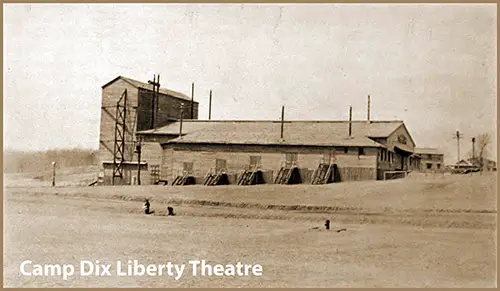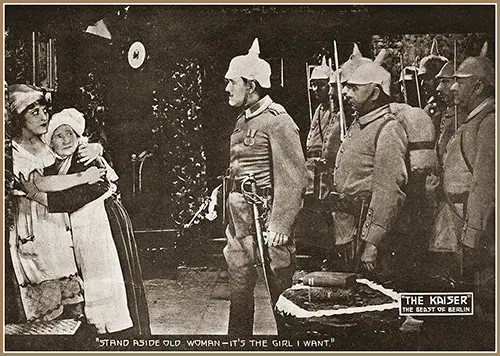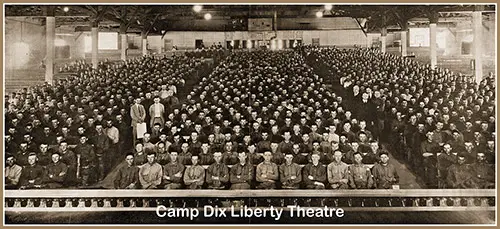The Camp Dix Liberty Theatre

The Camp Dix Liberty Theatre. Camp Dix Described and Photographed by Roger Batchelder, 1918, p. 32. GGA Image ID # 1ce5cc960f
"WHAT to do" is the most serious problem of the soldier's life. Not that he isn't busy most of the time, but there are several hours every day when he is left to his resources for entertainment or amusement.
At these times, particularly at night, his thoughts naturally revert to the "days that used to be." Consequently, he is likely to brood or become discontented. And his efficiency and value to the service suffer accordingly.
There are still some who claim that the soldier should devote all his time to his work. But be is a human being and, like all human beings, must be entertained. "
A contented soldier is a good soldier" has become the maxim of the War Department, and the Liberty Theatre is one example of their practical adherence to it.
After the draft men arrived at the cantonments, the YMCA and K. of C. did their best to furnish entertainment for them. The local organizations also gave shows composed of "local talent."
But the local talent was eventually exhausted, and the war workers' facilities were hopelessly inadequate to the entertaining of the entire camp.

Scene from "The Kaiser" The Beat of Berlin Shown at the Army Theatre 19-21 May 1918. The Kaiser, the Beast of Berlin Was a 1918 American Silent War Propaganda Melodrama Film Produced and Directed By, and Starring, Rupert Julian. The Screenplay Was Co-written by Rupert Julian and Elliott J. Clawson. The Film's Supporting Cast Included Elmo Lincoln, Nigel de Brulier, Harry von Meter and Lon Chaney. Camp Dix Pictorial Review, 20 May 1918, p. 7. GGA Image ID # 1ce8a4c8f0
Some remedy was necessary, something which would supply amusement for forty thousand men a week. The military authorities conferred with the country's leading theatrical men, and the Liberty Theatre plan was born.
Some grand auditoriums were constructed, one in each cantonment. Theatre men did their best to help the great cause; actors and actresses offered their services, either without compensation or at a price far below that they might ordinarily command.
The commission formed companies, and soon Uncle Sam had added to his various vocations that of the theatrical producer.
Now the men at Camp Dix can go to the Liberty Theatre seven nights a week, with matinees Saturday and Sunday, and see the first-class production for ten, twenty-five, or fifty cents.
And they are certainly taking advantage of this opportunity, for every night, the great hall, seating three thousand, is packed. Smileage plays an essential part in this scheme; over 70 percent of the admissions are paid in Smileage coupons.

Camp Dix Liberty Theatre Showing Soldiers Seated for the Entertainment Event. Character Building, 1918, p. 8. GGA Image ID # 1cebb3e748
